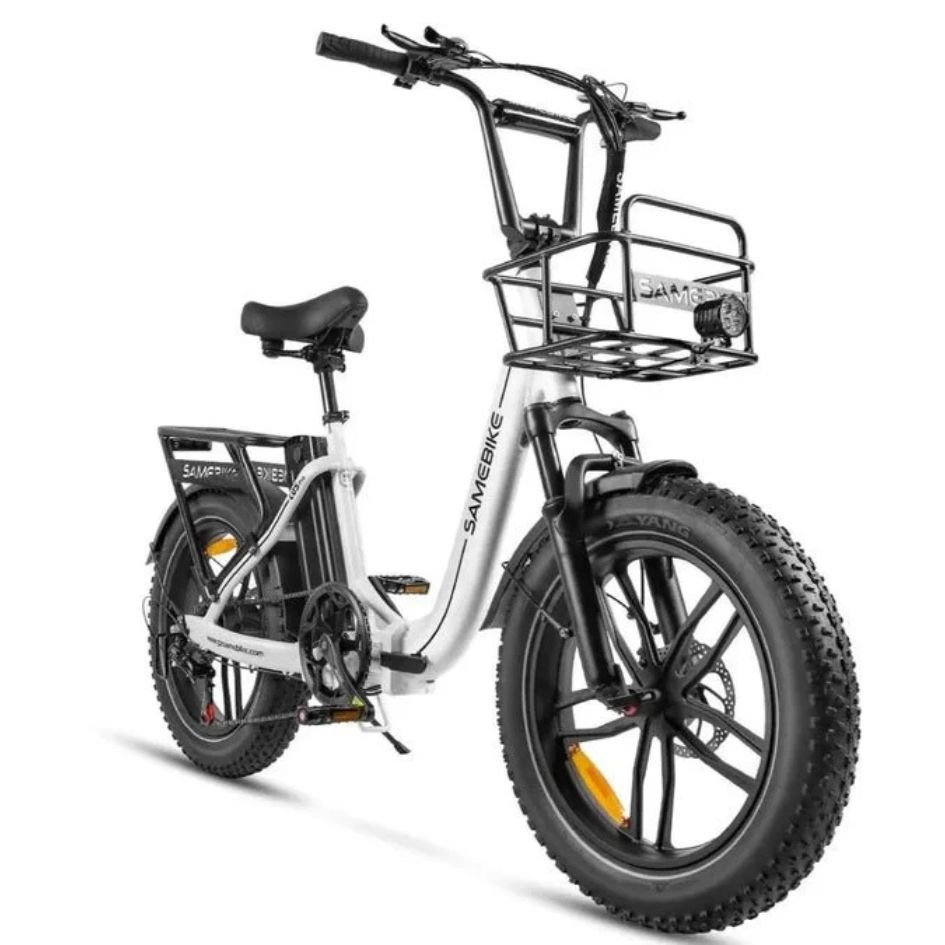
Electric bikes have revolutionized the way we commute, offering a convenient and eco-friendly alternative to traditional transportation. However, when you’re a heavier rider, choosing the right electric bike becomes crucial to ensure safety, comfort, and durability. In this guide, we’ll explore the key factors to consider when selecting an electric bike that suits your needs, with a focus on models like the samebike electric bike, eleglide m1 electric bike, and other options that cater to heavier riders.
Understanding the Importance of Weight Capacity
One of the first things to consider when choosing an electric bike as a heavier rider is the weight capacity. Each bike model comes with a specified maximum weight limit, which includes the rider’s weight plus any additional cargo. Exceeding this limit can lead to reduced performance, potential damage to the bike, and safety hazards.
For instance, the samebike electric bike is designed with a robust frame and components to support heavier riders. It’s essential to check the manufacturer’s specifications to ensure the bike can handle your weight comfortably.
Frame Strength and Material
The frame is the backbone of any electric bike, and for heavier riders, opting for a bike with a strong and durable frame is paramount. Look for frames made from materials like aluminum alloy or steel, which offer a balance between strength and weight.
The eleglide m1 electric bike features a sturdy aluminum alloy frame, providing the necessary support for heavier riders without compromising on performance. A strong frame ensures better stability and longevity, especially when navigating various terrains.
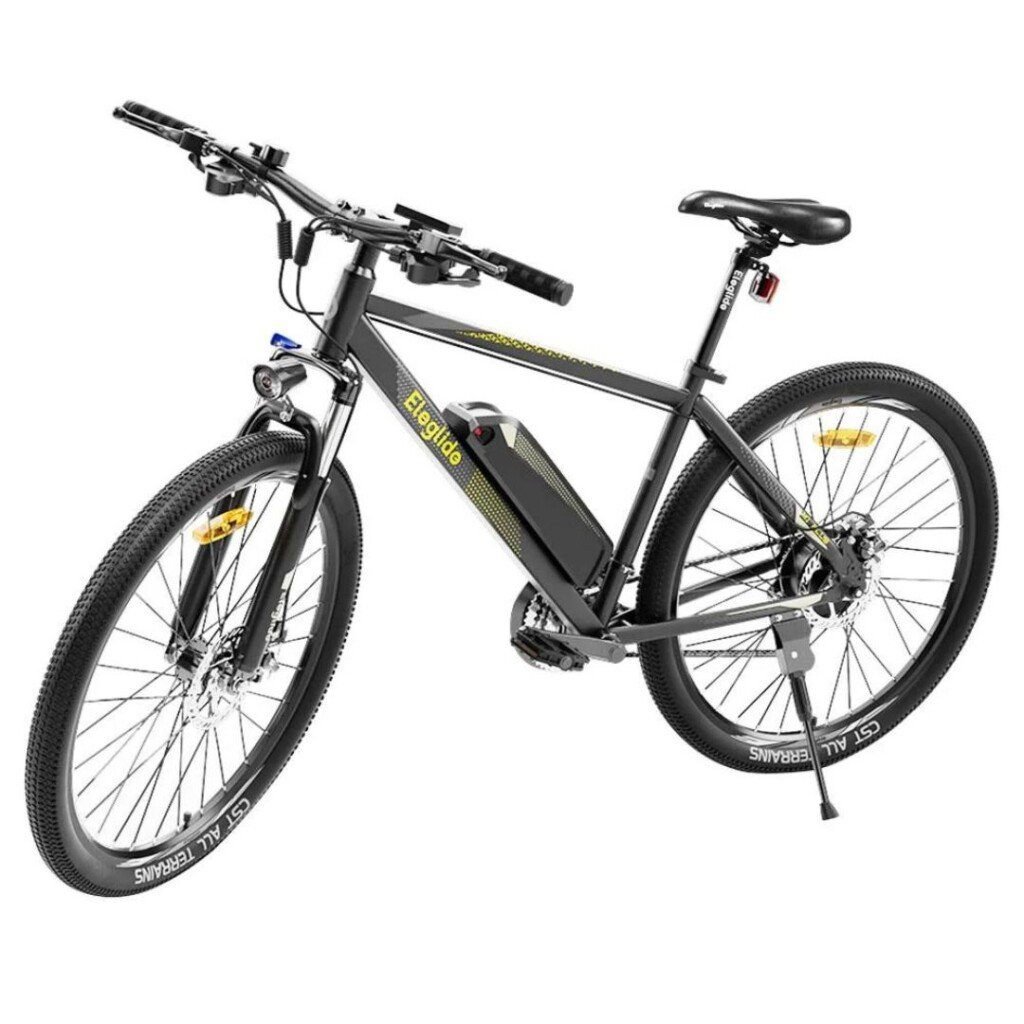
Motor Power and Performance
The motor’s power directly influences the bike’s ability to handle inclines and maintain consistent speeds, particularly important for heavier riders. A more powerful motor can assist in overcoming the added weight, making your ride smoother and less strenuous.
While the hoverboard electric bike may offer a unique riding experience, it’s essential to assess its motor power and suitability for your weight. In general, electric bikes with motors ranging from 500W to 750W are recommended for heavier riders, as they provide adequate assistance without overstraining the motor.
Battery Life and Range
Battery life is another critical factor to consider. Heavier riders may require more power to maintain speed, which can drain the battery faster. Opting for an electric bike with a larger battery capacity ensures longer rides and fewer charging interruptions.
The electric scooter electric bike category offers various models with extended battery life, catering to riders who need longer ranges. Always check the battery specifications and real-world range estimates to ensure the bike meets your commuting needs.
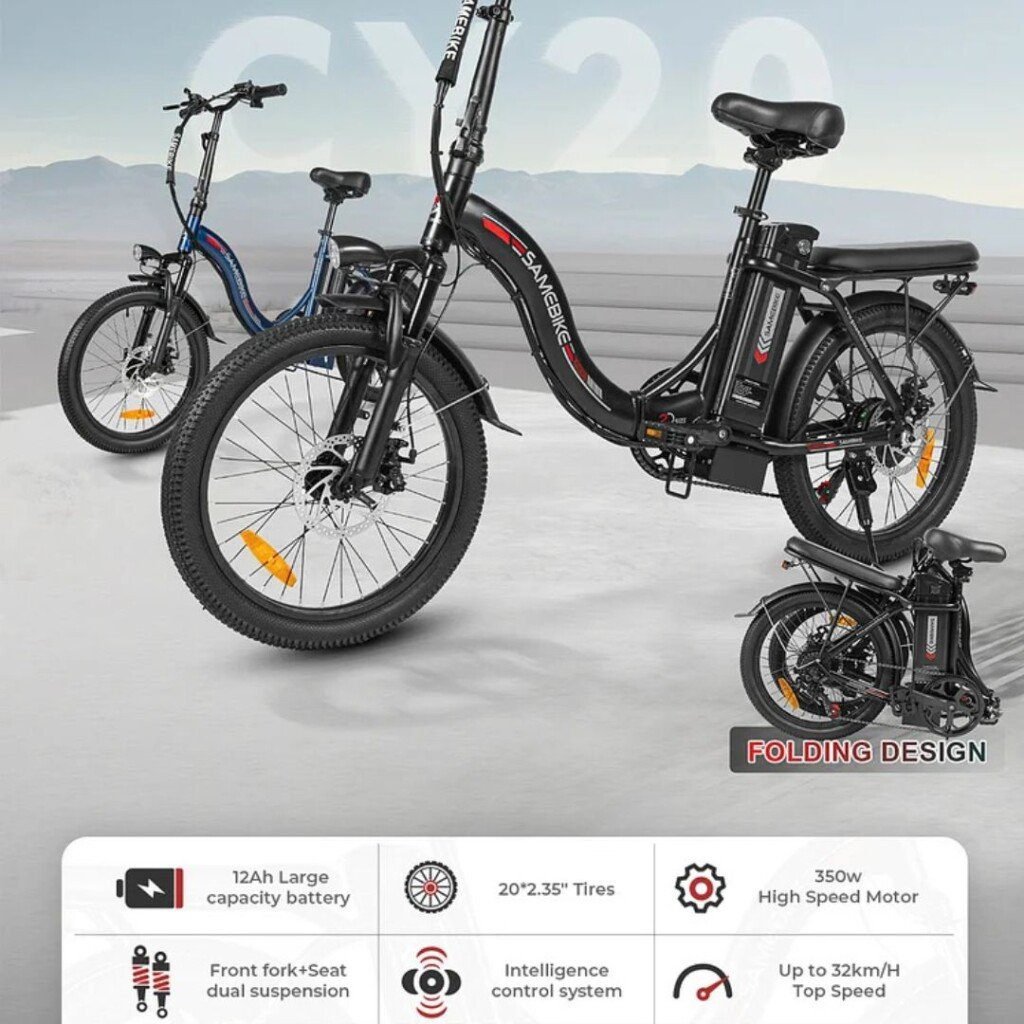
Comfort and Ergonomics
Comfort is key to an enjoyable riding experience, especially for heavier riders. Look for bikes with adjustable seats and handlebars to find the most comfortable riding position. Additionally, bikes with wider tires can provide better stability and a smoother ride over uneven surfaces.
The samebike electric bike offers adjustable features and a design that accommodates various rider sizes, ensuring a comfortable and ergonomic ride. Comfort features like padded seats and suspension systems can significantly enhance your riding experience.
Suspension System
A good suspension system absorbs shocks from rough terrains, providing a smoother ride. For heavier riders, a robust suspension system is even more crucial, as it helps distribute the weight evenly and reduces strain on the bike’s components.
The eleglide m1 electric bike comes equipped with a front suspension fork, which helps in absorbing shocks and vibrations, making it suitable for heavier riders who plan to tackle diverse terrains.
Braking System
Safety should always be a priority. The braking system plays a vital role in ensuring you can stop effectively, especially when carrying extra weight. Disc brakes, particularly hydraulic ones, offer superior stopping power compared to traditional rim brakes.
Both the samebike electric bike and the eleglide m1 electric bike are equipped with reliable braking systems, ensuring safe and responsive stopping power, which is crucial for heavier riders.
Tires and Stability
Wider tires provide better stability and traction, which is beneficial for heavier riders. They can handle more weight and offer a smoother ride over various surfaces. Look for electric bikes with tires that are at least 2 inches wide for optimal performance.
The hoverboard electric bike category often features wider tires, enhancing stability and comfort. Ensure that the tire specifications align with your weight and riding conditions.
Price and Warranty
While it’s tempting to opt for cheaper models, investing in a quality electric bike can save you money in the long run by reducing maintenance costs and increasing durability. Additionally, check for warranties that cover the frame, motor, and battery, as these are the most critical components.
The electric bike electric scooter models vary in price, but many offer competitive pricing for the features provided. Always review the warranty terms to ensure adequate coverage.
Final Thoughts
Choosing the right electric bike as a heavier rider involves considering various factors, including weight capacity, frame strength, motor power, battery life, comfort, suspension, braking system, tires, and price. Models like the samebike electric bike, eleglide m1 electric bike, and hoverboard electric bike offer features tailored to heavier riders, ensuring a safe and enjoyable riding experience.
Remember to test ride different models if possible, and consult with experts at local bike shops to find the best fit for your needs. With the right electric bike, you can enjoy the freedom and convenience of electric biking, regardless of your weight.
If you have any questions or need assistance in choosing the perfect electric bike, feel free to reach out to us. Contact us here.
FAQs
1. What is the best weight capacity for an electric bike for heavier riders?
When selecting an electric bike, it’s essential to choose a model with a weight capacity that exceeds your weight, including any cargo you may carry. For heavier riders, look for bikes with a weight capacity of at least 250-300 lbs to ensure safety and durability. Models like the Samebike electric bike are designed with robust frames to accommodate heavier riders comfortably.
2. Which frame material is best for a heavier rider’s electric bike?
For heavier riders, it’s important to choose a frame made from strong materials like aluminum alloy or steel. These materials provide the necessary support without adding excessive weight. The Eleglide M1 electric bike, for example, has a durable aluminum alloy frame that offers the ideal balance between strength and performance.
3. How much motor power is recommended for heavier riders?
Heavier riders should look for electric bikes with a motor power of at least 500W to 750W. This ensures the bike can handle the added weight, especially when climbing hills or riding at higher speeds. The Samebike electric bike and similar models provide sufficient motor power to make your ride smooth and effortless.
4. What type of suspension is best for heavier riders?
A quality suspension system is crucial for heavier riders, as it absorbs shocks and ensures a smooth ride on rough terrains. Look for models that come with front suspension forks or full suspension systems. The Eleglide M1 electric bike, for example, features a front suspension fork that reduces vibrations and enhances comfort on uneven surfaces.
5. Are wider tires necessary for heavier riders?
Yes, wider tires provide better stability, traction, and comfort, especially for heavier riders. Tires that are at least 2 inches wide are recommended as they can handle more weight and ensure a smoother ride. Many hoverboard electric bike models feature wider tires that provide added stability and comfort for a more enjoyable riding experience.

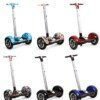
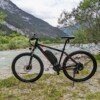
Add comment